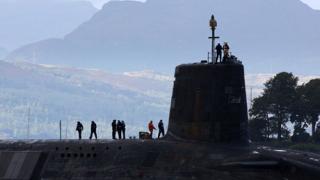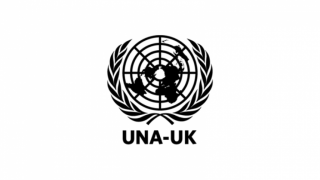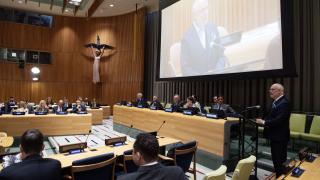
The House of Commons Defence Committee today published Deterrence in the Twenty-First Century, an assessment of the United Kingdom’s independent nuclear weapons capability.
Although the Defence Committee's report was supportive of the UK’s continued possession of an independent nuclear arsenal, in the words of the committee’s chair, Rt Hon James Arbuthnot MP, "nuclear deterrence must not form the be-all and end-all of our defence posture. […] As the world becomes more multi-polar and less stable and where the certainties of identifying an aggressor may be reduced, we shall increasingly need a more complex security strategy."
This point was emphasised through the report’s reference to UNA-UK’s written evidence to the inquiry, submitted in September 2013:
UNA-UK told us that the nuclear deterrent provided no benefit in managing the asymmetric threats posed by terrorist groups or by unstable states within which or near to which the UK had resource interests. ‘These frail states cannot be solidified by the UK's nuclear deterrent, and the deterrent cannot be used as leverage or as "a big stick" towards irregular forces within such states [...]. Al-Shabab does not feel threatened by any state's nuclear weapons, and the only time Al-Qaeda cogitates over any state's nuclear deterrent, is possibly to consider how it might compromise the security of it.’Defence Committee – Eleventh Report of Session 2013–14 (HC 1066): ‘Deterrence in the twenty-first century’, page 22, paragraph 51. UNA-UK's submission highlighted the limitations of a weapon of mass destruction deterrent within a developing and increasingly unpredictable global context whilst emphasising the continued importance of the UK’s commitment to multilateral nuclear disarmament and its international obligations in this regard. UNA-UK's evidence also probed the moral and ethical questions around the potential use, or threat of use, of nuclear weapons. Where the Defence Committee’s report concludes that "deterrence, both nuclear and conventional, has an important place in the defence philosophy of the UK but will increasingly form part of a more complex security strategy alongside greater need for resilience and recovery," UNA-UK would also emphasise that the UK must not merely respond to events on the world stage but, and particularly as a permanent member of the UN Security Council, seek to build trust internationally to facilitate movement towards a world free of nuclear weapons. For more information on UNA-UK’s Towards Zero programme, contact James Kearney, UNA-UK Peace and Security Programmes Manager, at kearney@una.org.uk or on 020 7766 3446.






